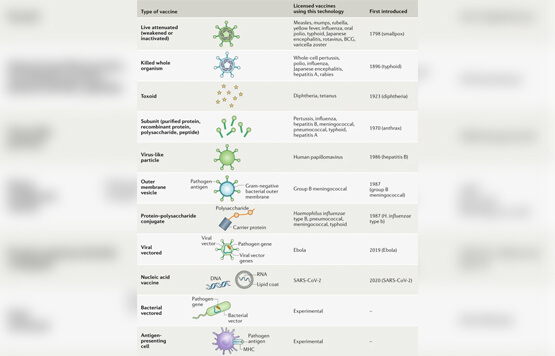National Vaccination Day 2024 represents a watershed moment in our shared commitment to public health. Every year on March 16, we mark National Vaccination Day to remind ourselves of the significance of vaccination. The introduction of the first oral polio immunisation in India in 1995 was a historic event. The World Health Organisation (WHO) supports vaccination as an effective method of preventing dangerous infections. Today, we acknowledge how immunisations promote public health, increase life expectancy, and benefit our communities. It is a poignant reminder of our shared responsibility to prevent the spread of infectious diseases and build resilient communities.
"Vaccines Work For All" is the affirming topic for India's National Vaccination Day on March 16th, 2024. The theme contends that all human lives, regardless of age, gender, geographical area, or socioeconomic status, should be safeguarded from preventable diseases by safe and efficient immunisation. National Vaccination Day has been marked in India since >March 16, 1995. This day is significant because it marks the successful eradication of smallpox, a contagious and lethal infection, thanks to a large vaccination campaign directed by the World Health Organisation (WHO). On this day in 1975, the last known case of smallpox was recorded, marking a historic win for global health. To boost awareness and emphasise the importance of immunisation, India instituted National Vaccination Day to commemorate this monumental achievement and the essential role vaccinations play in disease prevention.
Vaccination is one of the most successful public health measures ever developed. Vaccines can prevent infection and the spread of contagious illnesses by increasing the immune response to specific diseases. Communities can develop herd immunity by implementing comprehensive vaccination programmes, safeguarding people who are unable to obtain vaccines owing to medical reasons or age. The COVID-19 pandemic underscored the urgent need for global vaccine research and dissemination. Scientists laboured rapidly to produce safe and effective vaccines against the new coronavirus, resulting in quick vaccine approval and deployment around the world. Vaccination initiatives have helped to reduce the spread of COVID-19, save lives, and allow societies to reopen securely.
Despite the tremendous success of vaccination programmes, there are still obstacles to providing equitable access to vaccines for all populations. Disparities in vaccine delivery, vaccine hesitancy, and misinformation are important barriers to comprehensive immunisation uptake. Addressing these difficulties would necessitate joint efforts from governments, healthcare professionals, and communities to increase vaccine acceptance and accessibility.

Why does Vaccination Matters the most?
- Disease Prevention: Immunisation has been proven to be one of the most effective ways to prevent the spread of infectious diseases. National Vaccination Day serves as a rallying point to emphasise the necessity of receiving immunisations on time for diseases like measles, influenza, and polio.
- Herd Immunity: Vaccination not only protects the individuals who receive it, but it also helps to build herd immunity. When a large proportion of a community gets vaccinated against an infectious disease, the disease spreads more slowly, safeguarding others who are unable to be vaccinated due to medical reasons or age.
- Cost-effectiveness: Vaccination is frequently more cost-effective than treating the diseases it prevents. Vaccination programmes can dramatically reduce the economic burden of illness, which includes healthcare expenses, lost productivity, and societal repercussions.
National Vaccination Day acts as a reminder of vaccinations' profound impact on human health and well-being. Vaccination remains one of the most potent instruments in public health, with historic triumphs such as the elimination of smallpox and current attempts to battle infectious illnesses. As we mark this day, let us renew our commitment to promoting immunisation, protecting communities, and advancing the cause of global health for all.
Child Help Foundation along with Filaantro hopes that each individual vaccinates for the better health and also keep a track of vaccinations required for your children as a part of their development.
